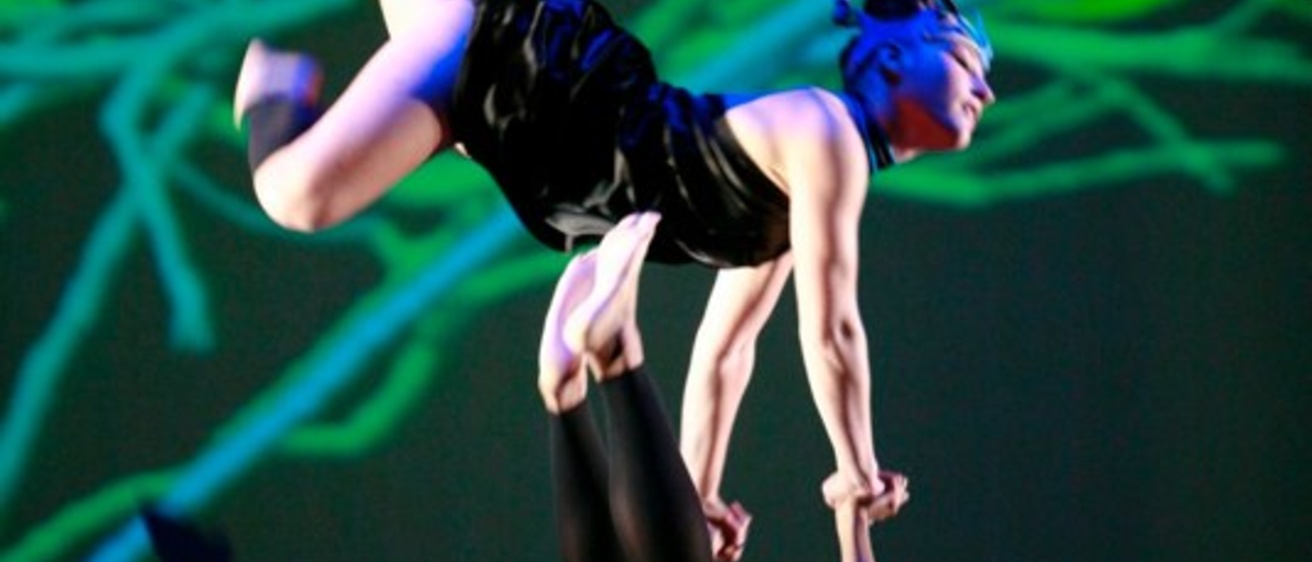Conference Highlights Informatics Work in the Arts and Humanities
Search “informatics” on Wikipedia and you’ll get a hint of the very wide swath that this relatively new field has already cut: bioinformatics, irrigation informatics, legal informatics, music informatics, cheminformatics, and disease informatics are just a few of its subfields. An idea that has been around for barely a half century, informatics continues to wend its way into a diverse array of disciplines and arguably has a role in every corner of the university, including the arts and humanities.
If you are curious what informatics has to do with dance or human rights tribunals, gesturing or gender, the two-day Obermann Working Symposium Designing the Digital Future: A Human Centered Approach to Informatics will offer multiple examples. Six visiting faculty members will describe work that includes sustainability issues and how to repurpose technology once it is outmoded, developing kitchen-based science curriculum for K-12 students, collaborative learning models, and addressing global challenges such as human rights abuses.
Iowa Informatics Initiative's Cross-Campus Goals
Organized by Juan Pablo Hourcade, associate professor of computer science, and Teresa Mangum, director of the Obermann Center for Advanced Studies, the symposium is intended to help departments from across the university better understand how they might participate in the Iowa Informatics Initiative, one of many campus co-sponsors. The initiative was launched last year, following a report by Executive Vice President and Provost Barry Butler and Vice President for Research and Economic Development Dan Reed. Given how widely informatics cuts across colleges and disciplines, they agreed, “We must work together and embrace a bold, cohesive, encompassing plan that builds on our strengths, while addressing current weaknesses.”
To this end, the university created an informatics hiring cluster, with five new faculty hired this academic year, and fifteen to follow. Although the newest hires are in relatively expected areas—computer science, engineering, and business— Hourcade believes that their work can creatively cut across disciplines.
“Just a decade ago, if you were a student in human-computer interaction (HCI) you were coming from either computer science or psychology,” he says. “People are now accustomed to working on interdisciplinary teams that include a surprising range of disciplines and skills.” Hourcade, whose focus is on designing technologies for children, regularly works with faculty in biology, education, and medicine, as well as with storytellers, teachers, and librarians.
Humanities Applications, Informatics Tools
He is excited that the conference will highlight methodologies from the humanities. Greg Carmichael, professor of chemical and biochemical engineering and the head of the Iowa Informatics Initiative, agrees: “The symposium will push my understanding further than it is now of how informatics is being applied, especially in the humanities.” He adds that he is also eager to learn how informatics is being organized at the visiting speakers’ home institutions.
As with faculty in other highly interdisciplinary areas, institutional barriers can be steep and include issues of funding, tenure and promotion, and research and publication. Hourcade says that if guests to the conference find the speakers’ work interesting and valuable, they need to ask themselves where such faculty would fit in the current University of Iowa structure. “And if we don’t see a place,” he says, “we need to make changes to allow for them.”
Peering Into Our Tech Future
In addition to some of these institutional issues, the symposium will no doubt provide multiple glimpses into future uses of technology. Hourcade says that this is one of the delights of working in the field—the preview one gets of technology that is still a few years out. Currently, he believes the area being most actively explored by HCI researchers is “augmented living,” including wearable technology, such as Google Glass, and “the internet of things,” which will link computerized objects in people’s lives, responding to their movements and even moods.
The diversity of co-sponsors, notes Mangum, suggests the limitless possibilities to integrate informatics into the arts, humanities, and social sciences as well as scientific disciplines. The new Public Digital Arts hiring initiative builds on imaginative collaborations already in place that connect students and faculty in dance and robotics and in engineering and design.
In addition to talks by the visiting speakers, the symposium features UI faculty already working in informatics and includes an “agenda lunch” on Saturday in which participants will explore challenges and potential artistic, research, and teaching partnerships for informatics on our campus.
Laptop Orchestra to Perform Friday Evening
Friday evening will highlight one unexpected technology and arts connection: LOUi, the Laptop Orchestra at the University of Iowa, a project of the Center for New Music. The ensemble, which gave their inaugural performance last spring using hemisphere speakers created in part from IKEA salad spinners, will perform Friday evening in the UCC Recital Hall.
All events are free and open to the public but registration is appreciated. [link removed]
Cross-Campus Support
This event has major co-sponsorship from The University of Iowa Informatics Initiative and the Office of the Vice President for Research and Economic Development; with additional support from:
- Women in Science and Engineering (WISE)
- College of Liberal Arts and Sciences
- Tippie College of Business
- College of Education
- Graduate College
- Public Policy Center
- DeLTA Center
- Digital Studio for the Public Arts and Humanities
- Division of Performing Arts
- Division of World Languages, Literatures, and Cultures
- School of Art and Art History
- School of Library and Information Sciences
- School of Music
- Department of Classics
- Department of Communication Studies
- Department of English
- Department of Mechanical and Industrial Engineering
- Department of Religious Studies
- School of Journalism and Mass Communication
- Information Technology Services
Photo of a Dance.Draw (link no longer available) performance at UNC-Charlotte by Rob Singh-Latulipe. Dance. Draw is a project of keynote speaker Celine Latulipe.
